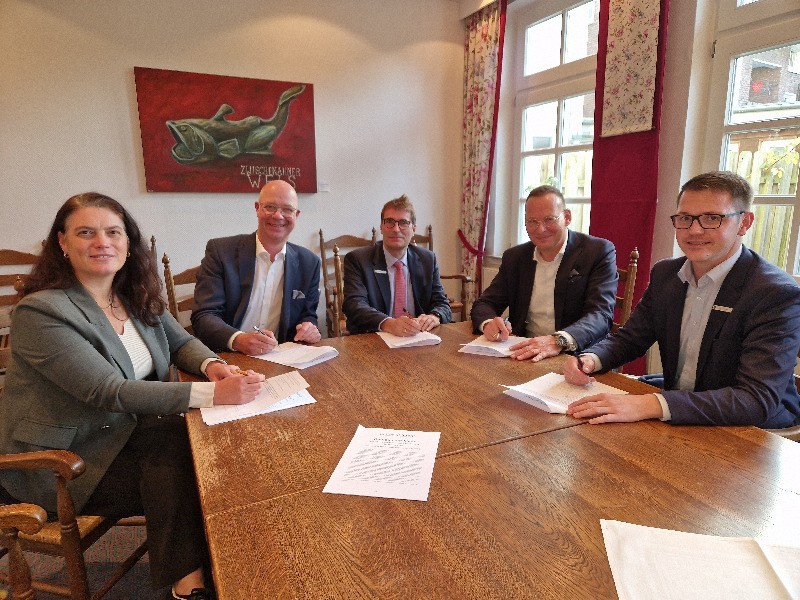In a world that is increasingly focusing on sustainable development, the role of vocational training is becoming more crucial than ever. This is precisely where the “Campus am Meer” initiative in Rostrup comes in: It brings together regional educational institutions and partners to create a future-oriented educational offering that integrates the topics of sustainability and environmental responsibility directly into vocational training. This offers particular opportunities for the construction industry, which can be prepared for the coming challenges of the sector through micro-certificates and practical learning concepts.
The idea of the “Campus am Meer” goes beyond the mere transfer of specialist knowledge. The focus is on the holistic education of young people, who will increasingly have to deal with sustainable concepts in their professional lives. The merger of various educational institutions, including Bau-ABC Rostrup, BBS Ammerland and the Lower Saxony Chamber of Agriculture, enables broad and practical training – a decisive step towards closing the gap between school and career entry. New skills are particularly in demand in the construction industry, for example in the areas of sustainable construction, resource conservation and environmentally friendly technologies. Here, the campus focuses specifically on micro-certificates that teach special “green skills” and thus make an important contribution to the sustainable construction industry.
Creating synergies: Shared resources for maximum impact
By cooperating and sharing resources, the “Campus am Meer” can implement its educational approach efficiently and sustainably. Plans include shared spaces, new mobility concepts and practice-oriented educational programs that make the concept of sustainability tangible in everyday life. This type of collaboration not only creates a common identity for the campus, but also positions it as an educational center that is actively committed to achieving the 17 UN Sustainable Development Goals (SDGs). For the construction industry, this means that future professionals will develop a deep understanding of sustainability during their training – a prerequisite for implementing environmentally friendly construction projects.
Sustainability in practice: projects and peer-to-peer learning
Another key aspect of the “Campus by the Sea” is practical career guidance through hands-on projects. In the construction industry in particular, the concept of “learning by doing” is promoted through concrete tasks and projects that offer pupils an insight into the demands of working life. Peer-to-peer learning, in which experienced pupils and trainees pass on their knowledge to younger classmates, creates a culture of knowledge sharing and at the same time strengthens the sense of community. In this way, even the youngest are motivated to anchor sustainable action in their future careers.
The State Garden Show 2030: making sustainable education visible
The State Garden Show 2030 offers the “Campus by the Sea” a unique platform to make sustainable education accessible to a broad public. Activities and presentations on site will highlight the importance of vocational education for the future of the construction industry and the role of sustainable concepts. This will not only sensitize the local population, but also the construction industry as a whole and highlight the importance of green skills. The campus thus demonstrates how vocational training and sustainable development go hand in hand and how young people can be prepared for the challenges of the future through targeted training.
A sustainable future in the construction industry through targeted training
The “Campus am Meer” in Rostrup is a pioneering project that shows how vocational training and sustainability can be combined in the construction industry. Through the introduction of micro-certificates, practical learning concepts and the use of regional synergies, an educational approach is being created that prepares future skilled workers for the requirements of a sustainable construction industry. For companies in the construction industry, this offers a valuable opportunity to attract well-trained specialists who not only master the craft, but can also actively shape a sustainable future.
Sustainable training at the “Campus am Meer” is more than just an educational initiative – it is a model for the vocational training of tomorrow.
Author: Ann Kristin Jarchow

